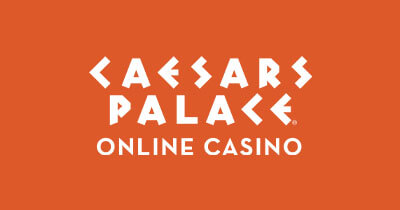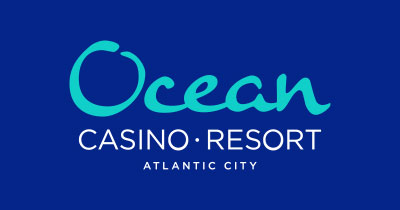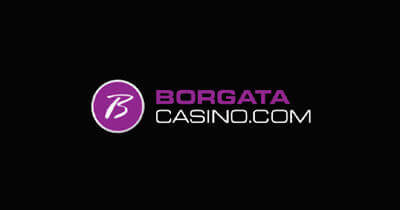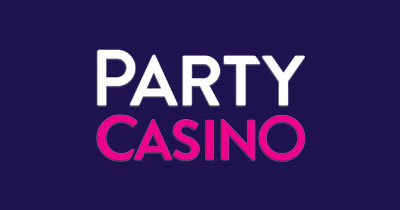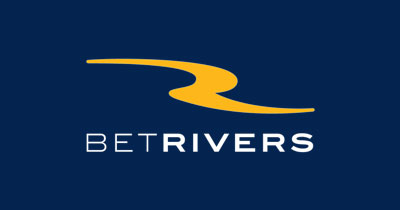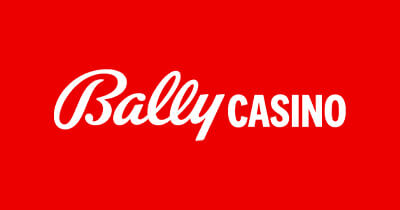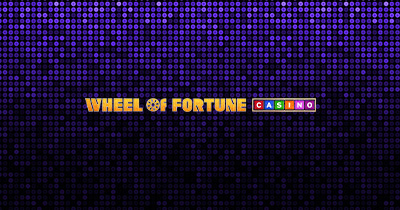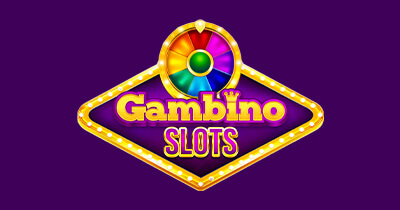by Steve Bourie
Introduction
I initially heard of Max Rubin in 1994 when his book, “Comp City,” was first published. The book was revolutionary in that it gave gamblers an inside glimpse into how casinos rated players and how to take advantage of the casino comping system. Rubin’s philosophy was that any gambler could learn how to play a break-even game of blackjack and still come out ahead simply by getting comps (free rooms, free food, free drinks, etc.) in return for their action at the tables. The book was an immediate best-seller and to this day it continues to sell well with many players considering it a “must have” for their gaming library.
In the early 2000’s I saw Rubin on some of The Learning Channel and Discovery Channel shows about casino gambling. He frequently appeared on those shows as an expert on getting comps at casinos.
I later learned that Rubin was an expert blackjack card counter who hosted an annual Blackjack Ball which gathered together some of the world’s best card counters for an evening of fun and entertainment. His reputation in this field was further solidified when I saw him co-hosting “The World Series of Blackjack” on the Game Show Network in 2004. Max gave his insight on each player’s strategy moves while participating in a dialogue with the show’s host Matt Vasgersian. Rubin later moved on to co-host the Ultimate Blackjack Tour which is currently broadcast on Saturday afternoons by CBS-TV.
With such an extensive and varied background in the world of casino gambling I was curious to learn more about Max. In the spring of 2006 I finally had the chance to interview him by phone from his home in Las Vegas and here’s the story of one of gambling’s more colorful characters.
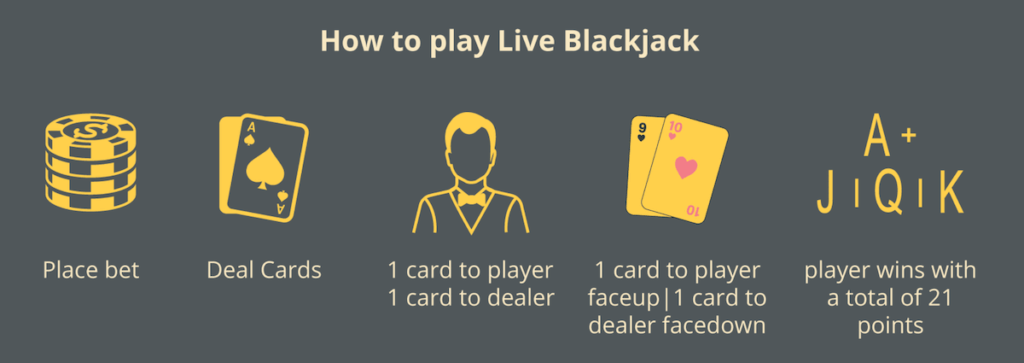
The Interview
At the age of 18 Max Rubin hitchhiked to Las Vegas from a little town called Borger, Texas where he had grown up. “It was an oil patch town of about 10,000,” he says. “My parents had been divorced since I was two and my dad at the time was an “eye in the sky” at the Golden Nugget. He was also a bit of a crossroader (casino cheater). He did a little bit of mucking (switching cards) and marking cards; those sorts of things.”
If his dad was a known cheater one might wonder why a casino would hire him, but Rubin explains that things were different back then. “In those days the crossroaders worked upstairs watching the tables,” he says. “Keep in mind, the casinos had no cameras. My dad did what’s typically called ‘surveillance’ now. He was one of the ‘wise guys’ that worked the catwalks on the top of the casinos and looked for cheaters. Nobody else knew what they were looking for, so they needed cheaters to look for cheaters.”
Being new to the town, and trying to earn a few extra bucks, Rubin says he was used as a “rounder” a couple of times by professional teams. “Being a rounder,” he explains, “meant I would stand outside of a blackjack pit or right outside on the street and have a fake fight with somebody so that everybody’s heads would turn. Then the guys would go into the pits and actually take cards off the podium so that they could mark them and get them back into the games.”
Rubin’s life-style with the “guys” lasted only a short time because he says “I saw they lived in really crappy day-by-day apartments and drove cars with bald tires, if they had cars at all. It just wasn’t the kind of life that appealed to me.”
He got a track scholarship to UNLV (University of Nevada, Las Vegas) where he went through the typical college stuff: going to school, doing college jobs, living in the dorms, and being broke at all times because he gambled almost every day, as did everybody else. “We all played blackjack and we didn’t have a clue what we were doing,” he says.
When he turned 21 the Selective Service System held a lottery for potential draftees for the Vietnam War and he won – meaning he had a very high number – so he dropped out of school and started breaking in at the Horseshoe in downtown Las Vegas as a dealer. Shortly after that he went up to Lake Tahoe where he worked for a year-and-a-half. It was during this stint in Tahoe that Rubin first learned about card counting. “I ran into some guys who were starting card counting teams and I got to know a little bit about it,” he says. “I was dabbling in it, but not really doing much.”
Rubin came back to Las Vegas to finish his degree in hotel administration at UNLV and upon graduation he became a casino manager in 1975 at the North Shore Club in Lake Tahoe. That only lasted for about one year, but while he was there it allowed him to renew his contacts with his card-counting friends and he started learning more about it.
Rubin moved back to Vegas to work at the Riviera while learning the real estate business. Within two years he quit his casino job and made his living as a broker. He did well financially and, once again, renewed his contacts with his card counting friends who were now playing in Vegas as well as Tahoe.
“They were starting to use some very sophisticated plays,” he says. “They were playing with computers and they were shuffle tracking before shuffle tracking was even known. They were doing a lot of really interesting things, so I went out and started playing a little bit. I did what was called BP’ing, where I was the Big Player (the player who makes big bets at the blackjack table after receiving a signal from a team member) and I played with them for a little bit.”
Within four years, Rubin’s real estate ventures hit troubled waters and he returned to work as a pit boss at the Sands. He did that for a year-and-a-half while playing blackjack on the side. During the next few years he dabbled in some other business ventures, while still playing blackjack, but then he came to a life-altering decision.
“It was time for me to figure out what I was going to do with my life,” he says. “I thought to myself, well I can keep trying to start all of these businesses or I can do what I always wanted to do which was to be a writer and do some creative stuff.” That was in 1989 and some of his friends were opening a new casino called the Mirage, so he asked them for a job, but not in management. He decided that he just wanted to be a dealer, play blackjack on the side and try his hand at writing.
Over the course of about a year-and-a-half Rubin wrote a screenplay that won the Nevada Screenwriters Award and, surprisingly, he ended up becoming a boss on the Mirage’s graveyard shift. Because of his card counting background Rubin became the casino’s “counter catcher,” but he imposed limits on how he handled the situation. “Basically, I would never finger anybody,” he explains. “I would just tell them: don’t play on my shift, go play some place else.
I was very forthcoming with management at the Mirage because they were my friends. I said I know you want to keep these guys from playing in here, but it’s not my job to put people in the Griffin book (the Griffin Detective Agency’s record book with photos of suspected cheats and card counters) and do those sort of things. I will just nicely tell them there’s a lot of soft spots in the world, but this isn’t one of them. So I had a good reputation from both sides because I was always very up front with both sides and I’ve always been that way.”
It was also at this time that Rubin was having his greatest success as a card counter. “I was playing a lot and I was playing with probably the biggest count team in the country,” he says. “We were doing a lot of pretty sophisticated stuff: shuffle tracking and something called depth charging. I was making about as much money at the time playing blackjack on weekends as I was working.”
Within another year-and-a-half, Rubin was doing so well playing blackjack that he retired from his casino job. “The last job I had was in 1992,” he says. “After that all I did was play blackjack, manage teams, organize teams and do all sorts of team things until 1999 when other opportunities opened up for me.”
As a professional player Rubin learned how to maximize his opportunities for casino comps. “I was getting all these marvelous comps as a big player for a big team,” he says. “I was learning all the intricacies of what made the comp system work and I figured out a way to beat it. That’s what “Comp City” is all about and why it really kind of revolutionized how blackjack players can approach the game. The basis of the book is how to play with an advantage against the casino without counting cards or doing anything else. Simply by being a basic strategy player, but instead of winning money you’ll win stuff.”
And what originally inspired him to write “Comp City”? “I wrote the book,” he says, “because I was in Lake Tahoe and we were staying at Caesars. I had comp suites for my family and another family and there was a limo waiting for us at the bottom of our ski lift when we got stuck. My wife was sitting there and she said you know what? You ought to write a book about this comp thing. Tell people how they can really beat it. I was writing some things at the time, scripts and screenplays, and that was the direction I wanted to go in, so I said okay. I didn’t know if anybody had ever written about comps, so I went over to my friend (“Las Vegas Advisor” publisher) Anthony Curtis’ house to research the subject. It turned out that nobody had ever written anything on it so Anthony let me run with it.
“It took me close to two years to assemble the stuff and then I wrote about a 600-page rambling book which was edited into about 300 pages. It did very well for us and it was interesting because the casinos, as they typically do, overreacted and started changing some of the comp policies, but because of those knee-jerk reactions they opened up some other doors. The thing that made Comp City work as far as being able to “fool the bosses” still works. You bet big when the boss is watching, you bet small when he’s not. You just learn how the systems work and take advantage of those systems. As a matter of fact I’m now in the process of finishing the third edition of Comp City. The new edition also covers video poker, plus it’s going to somewhat cover slots and how you can beat the technologies, but primarily it’s still a book about blackjack.”
Since the introduction of “Comp City” in 1994 many casinos have introduced new blackjack games with a much higher casino advantage. Examples are Super Fun 21 which pays even-money on blackjack instead of the standard three-to-two, plus single-deck games that only pay six-to-five for blackjack. Rubin warns players that these games are more difficult to beat, but that they can still offer an advantage for some.
“Typically it’s gotten more difficult in the tourist venues like Las Vegas,” he says. “Most people in America are what we call day-trippers which means they sleep in their own beds after they gamble, which you can do now around most of the country. Most of those venues don’t have six-to-five blackjack because it harvests the money too quickly from the players.
“In Vegas they have six-to-five games and frankly I think it’s a great introductory game for someone who has never played before, simply because the people on the game will not intimidate you when you sit down to play because these other players don’t know how to play themselves. I’ve been involved with a number of focus groups on why people, particularly ladies, will not play blackjack in a casino environment, and it’s because they’re intimidated by the dealers and the other players. So in order to get your chops and learn how to play the game, six-to-five is okay for players on a $10 game.
“But the reality is that a six-to-five game takes a lot of money out of people. It’s kind of a safety net for the casinos that really don’t know how to protect themselves and I think they’ve gone a little bit too far in spreading it too fast. There are so many gimmick games out there. The ones that I really find distasteful are all the side bets. Those little dollars that people throw out make the house a lot more money than the $10 and $15 wagers do and it just chews people up too much. I don’t like those, I think the real value in a customer is their long-term lifetime value to a casino.
“I think Amarillo Slim said it best: ‘you can shear a sheep many times, but you can only skin it once.’ Some casinos try to skin everybody and I personally find it very distasteful. As a matter of fact, that’s what I’m going to be speaking about at an upcoming Canadian Gaming Summit: how to nurture your customers and create long-term relationships. Using all those gimmick games is not the way to do it.”
In mentioning the Gaming Summit Rubin alludes to the fact that his reputation has grown within the gaming industry and he credits it to when he quit gambling for a living in 1999. While he enjoyed it, he decided that it was “a young man’s game” and it was time to put it behind him.
“You’re on the road a lot and you can’t make mistakes,” he explains. “Plus, it’s always kind of a hollow victory when you win because all you win is money and you don’t get much of a sense of accomplishment when you’re playing blackjack. Certainly if you’ve got financial needs it comes in handy. It was really fun tricking the comp systems and all those things, but it just got to the point it wasn’t fun anymore and I try to never do anything if I don’t have fun doing it. I’ll go out and gamble a little bit to have some fun, but as far as being a pro? I just said that’s enough.
“Fortunately, in 1999 other things started happening for me. I was helping a former business partner, acting as a consultant to him on how to run the best games possible at a casino in San Diego called Barona Valley Ranch. I taught customer service, marketing and game protection. I began doing that on a quasi-full time basis and I’m still doing it now.
“I also started getting TV work by helping some guys that were doing shows for the Travel and Discovery channels. At first I just volunteered to be a talking head on the show, but after a while I started getting recognized quite a bit and other opportunities came along. I wound up being host of “The World Series of Blackjack,” host of “The Ultimate Blackjack Tour” and I’ve been on “Casino Diaries” and the “Breaking Vegas” series.
“It turns out that I really love doing those sort of things and I morphed into something else. I have literally been on scores of television shows, written hundreds of articles and now I’m getting real Hollywood dollars for shows I appear on. I’ve got the biggest agents in Hollywood and I’m getting offers everywhere.
“I’ve got a new series of DVDs called “Vegas Maximus” coming out soon. I’ve got a Master Blackjack DVD series on how to count cards and it’s going to evolve to where I’m going to have a DVD on tournament play, gonna have a DVD on Comp City. I’m working on a thing called “The Road to Vegas” where people can listen to CDs with comical lessons on how to gamble. Then I’ve got agreements with other publishers of video poker software and we will have an entire arsenal of DVDs. We launch all this soon and it’s going to follow that model where you get the first one free and then you get into a continuity program. So that’s what I’ve been spending a lot of my time on now. I’m doing all of this and in the meantime I’m still training people at Barona.”
Rubin’s philosophy of offering good blackjack games with liberal rules for players is very apparent in his consulting work at Barona. “We offer the loosest blackjack game on planet Earth without question,” he says. “$50,000 a hand, single-deck blackjack with surrender. It’s a break-even game off the top. The fact that Barona has such a loose game means they win much more money than anybody else. A very interesting thing about blackjack that has still failed to dawn on so many casinos is that the more options you give players, such as surrender and doubling after split, it gives the players more opportunities to make mistakes. There are very few players than can actually beat blackjack, but there are tens of thousands that like to think they can. It’s really created an enormous amount of business at Barona.”
With such loose games it seems inevitable that professional players would be drawn to Barona and it’s up to Rubin to keep the wolves at bay. “The pros don’t really hold that against me,” he says. “They understand that if I weren’t part of Barona then the blackjack games would be just like everybody else. Although I’m really too busy to do it, I will help any casino with consulting as far as cheating is concerned, but I will not help any casino other than Barona when it comes to advantage play. If I did that then I would become persona non grata with all my friends. I know virtually every player in the world of professional blackjack and I host a party every year called the Blackjack Ball. I respect those people for what they do and they respect me for what I do. We also have a Blackjack Hall of Fame at Barona and anyone who is in the Blackjack Hall of Fame gets room, food and beverage for life simply by agreeing not to play there.”
In looking to the future, some gaming suppliers are now beginning to offer RFID-enabled chips to the casinos. The RFID stands for Radio Frequency Identification and it means that each chip has its own identifiable radio signal which can be tracked by the casino to determine its location at any given time. It also means, however, that the casino can tell exactly how much a player is betting at any given time and they will no longer need to rely on the floorperson to estimate a player’s average bet. Does this new technology mean that the end is near for players trying to hustle comps?
“The only casino in Las Vegas that is using RFID today to track your average bet is the Hard Rock, but they still can’t tell what level of skill you have,” says Rubin. “But I think it will probably be the end of times for comp hustlers within the next five to ten years because the technology is getting cheaper. Moore’s Law says that every 18 months everything gets half as big and costs half as much so it’s getting cheaper and cheaper. Casinos want to reduce their workforce and by embracing this technology they won’t have to use floor supervisors to rate people.
“It’s almost affordable for the casinos now and it’s only a very short matter of time before we see the premier Vegas mega-resorts starting to put it in. Then it will slowly proliferate around the country to where almost all operations will find it necessary to have it because if they don’t, what’s going to happen is that the non-profitable people, such as me, and the other customers that don’t make them money are going to leave the premier properties that invest in this technology and they’re going to migrate to the competition that doesn’t have the sophisticated technologies. Right now, there are terrible blackjack players that the house doesn’t know are terrible players, and there are also extremely skilled players that the house doesn’t know are skilled, yet they lump them all together and give them all the same bite of the pie. That isn’t the way it should work. They should invest most of their money in the most profitable customers and let the unprofitable customers go down the street.”
While acknowledging that these new technologies will give an added advantage to the casinos, Rubin believes that smart lower-limit players will always have an edge in the comp-hustling game.
“Typically the $5 and $10 player isn’t getting rated so the casino doesn’t know who they are anyway and they’re going to have a slight advantage,” he says. “For example, if you’re a $10 blackjack player and you like to have a cocktail every hour, you’re playing at an advantage over the casino. You’re expected loss is $1 to $1.50 and you can have a drink or two which has a retail value of $6 or $7, so you’re actually playing with a bit of an advantage over the casino. Most of these people we call the grazers, and they are always going to have a slight edge over the casino if they have the skill sets to do it. The problem is some grazers don’t take the time to learn how to play basic strategy and if you don’t know how to play the game properly the casino always has an edge over you. That’s the biggest kind of conundrum there is that most low-end players won’t take the hour or two to learn how to play the game right.”
When asked for his best advice for players seeking to take advantage of casino comps, Rubin suggest visiting his website at www.maxrubin.net to see his list of top 10 tips for getting comps, but he does offer up a few of his favorites. “The best tip is to ask. You gotta ask because if you don’t ask they won’t give it to you,” he says. Also, bet big when the bosses are watching; bet low when they’re not watching; learn basic strategy; and be nice!”
Finally, Rubin gives some advice which may seem somewhat contrary to what he usually advocates, but it’s something he believes all players should think about when deciding which games to play.
“There’s something I want to say that all of the purist and the professionals just rail at me when I do it, but I believe if you want to play a game it doesn’t matter about the math,” he explains. “You come to Las Vegas to have a good time and yes, roulette has bad math, but it’s still fun. I have guilty pleasures. I like Megabucks and I like roulette. I play the games for fun and if it’s not fun you shouldn’t play. If you want to play a game, play it anyway and don’t let the math snots tell you not to play. If you go to New York City, you should go to a Yankees game, you should go to a play, you should eat at Tavern on the Green, you should do all those things. There’s not a mathematical edge on any of those. If you come to Vegas you should go to the shows, you should play the games, you should play whatever you want to play and have a good time.
“But if you’re going to play a long time and you’re going to become a serious blackjack player, then take a few hours to study the game and learn how to take advantage of the comp system. Learn how to reduce your losses and maximize your fun by getting more free stuff.”

